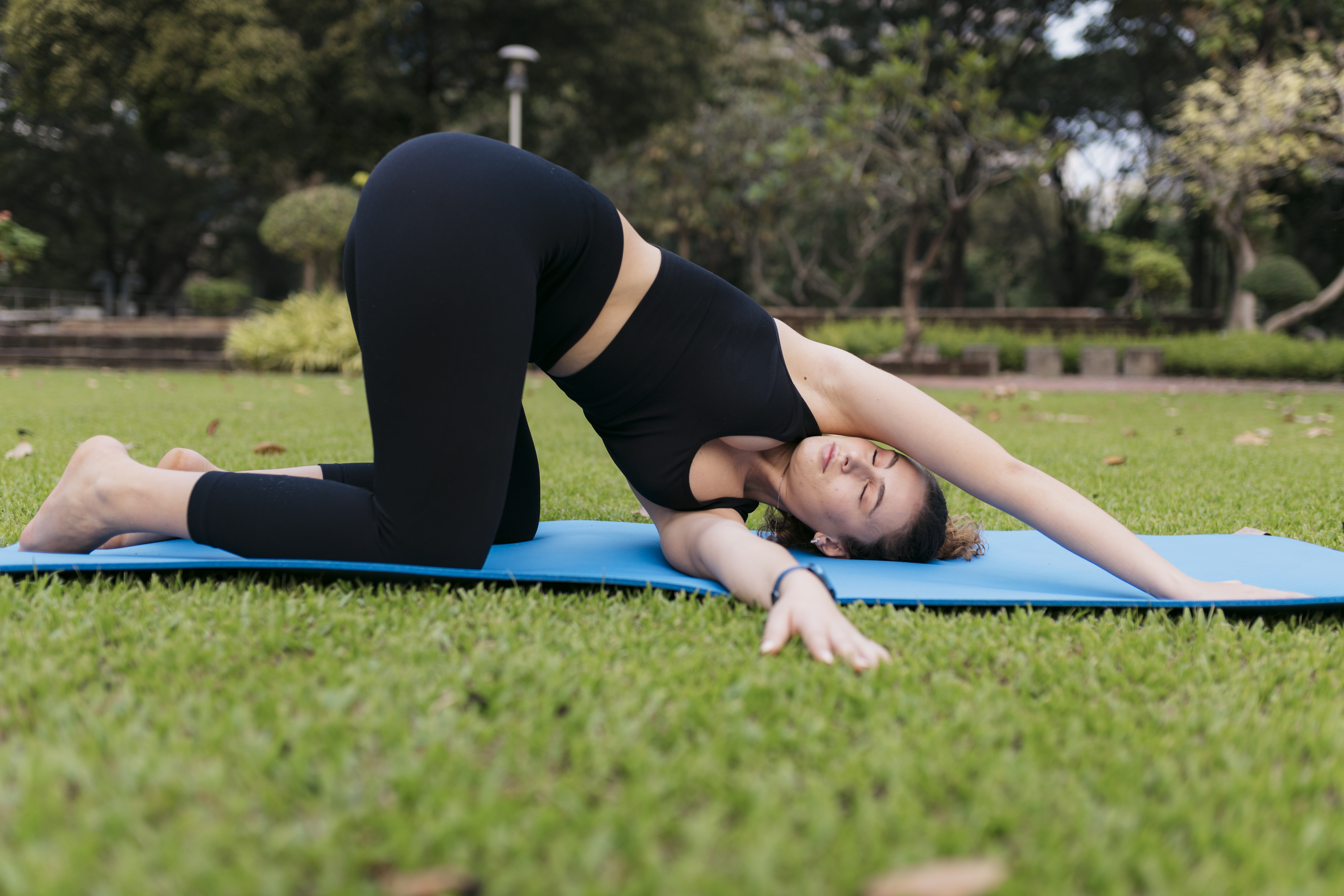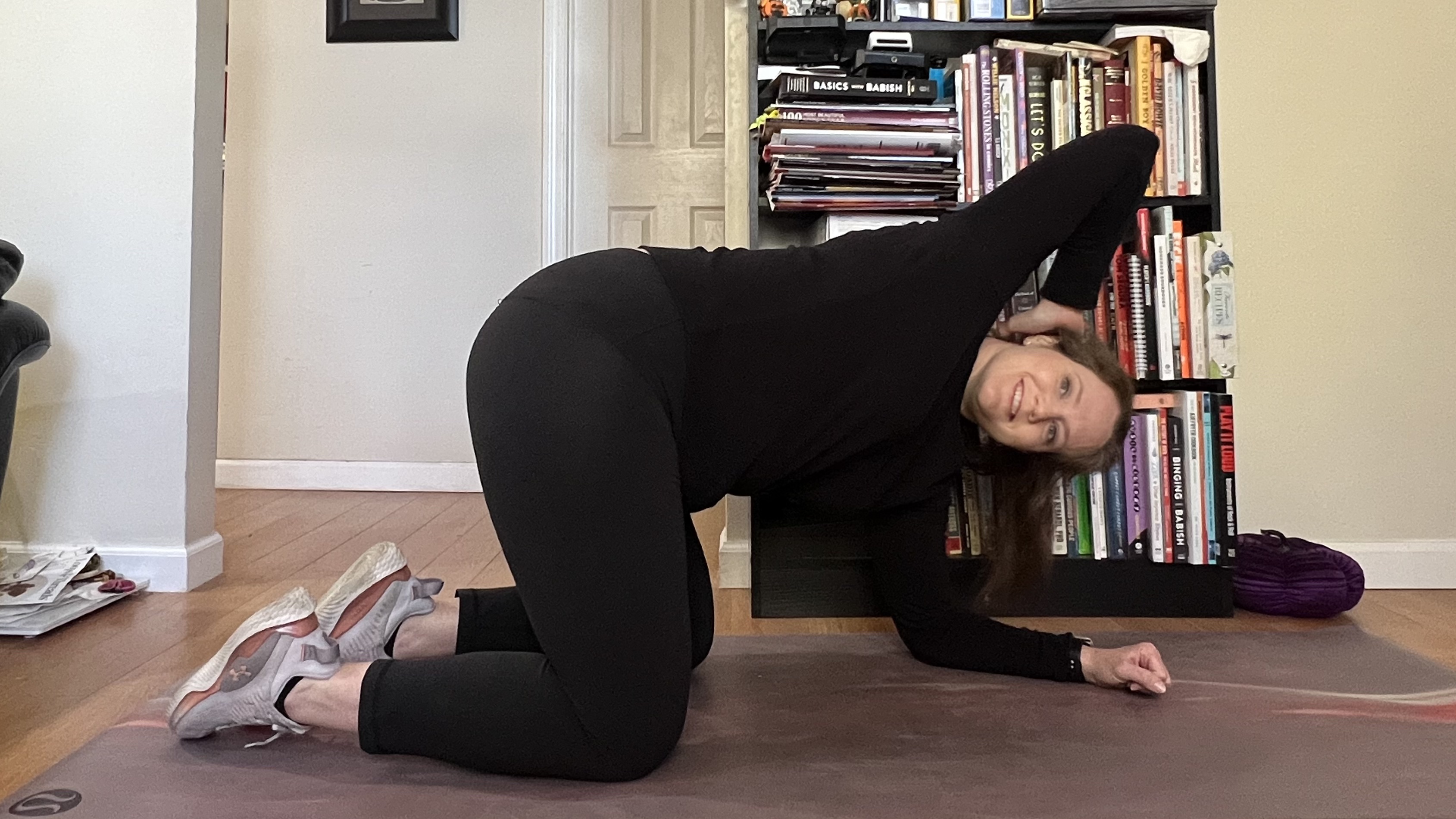A yoga teacher recommends these six moves to improve your mid-back mobility
Keep your spine limber with these simple movements


As a personal trainer, I’ll often hear clients mention that chronic back pain limits their activity. Unfortunately, it’s a common problem for anyone that spends their work days tied to a desk.
"Stiffness in the mid-back—thoracic spine—often comes from prolonged sitting, poor posture, and repetitive habits that restrict movement," says yoga teacher Esther da Costa in the introduction to her six-move mid-back mobility routine. "Improving mid-back mobility enhances range of motion, supports better posture, and reduces strain on the lower back and shoulders."
While I’m lucky to have a job that keeps me active, I still deal with persistent back pain and have less-than-ideal posture. I was eager to see what effect da Costa’s routine would have on my spinal mobility, so I decided to give it a go.
How to do Esther da Costa’s six-move mid-back mobility routine
A post shared by Esther da Costa | Yoga. Strength. Wellness (@esthermarieyoga)
A photo posted by on
You won’t need any additional equipment to do these moves, but you may want to roll out a yoga mat for comfort. Many of the exercises are done in a quadruped position on your hands and knees, so use a rolled-up towel or yoga blanket for extra cushioning if needed.
Da Costa notes that these movements can be added to your regular workout or used as a stand-alone routine. The six moves are:
- Low lunge archer arms
- High to low puppy pose press
- Threaded needle arms
- Thoracic rotation on elbows
- Hands to head flex and extend
- Standing side-to-side twists
Da Costa doesn’t mention a repetition count for each exercise, but I decided to do either 10 total or 10 on each side, when applicable.
Everything I noticed after doing the routine


1. My low back pain improved
My lower back has given me issues since high school, so I’m always looking for ways to reduce pain and avoid flare-ups. I had been focusing on stretches and core strengthening exercises to do this.
Start your week with achievable workout ideas, health tips and wellbeing advice in your inbox.
After a few days of da Costa’s routine, I realized how stiff my mid-back had been and how much that had affected my lower back. As my range of motion steadily improved with the exercises, my dull lower back ache began to diminish. This was the most surprising take-away for me.
2. My shoulders and neck loosened up
My shoulder and neck muscles are chronically tight, and I have trouble keeping them relaxed. They often become overactive during exercises like the reverse fly and upright rows and I usually have to drop to a much lighter weight, otherwise it's too uncomfortable.
However, these muscles felt much looser after practicing da Costa’s routine. As a result, my rotational range of motion in the cervical spine (neck) increased, and my traps (a muscle group in the neck, back, and shoulders) tightened up a lot less during workouts.
3. I slept better
Sometimes I wake up in the middle of the night with a cramp in my neck or aching hips. I usually switch positions and fall back to sleep, but it’s rare that I can make it through the night without waking up.
After three days of doing da Costa’s mid-back mobility workout, I slept like a rock. Whether or not this is directly related to the exercises is hard to say, but I think it had some influence.
I'd highly recommend this routine if you're new to yoga. You could team it with these beginner yoga stretches or tag it onto the end of a full-body dumbbell workout, to help you cool down.

Jennifer Rizzuto is a freelance fitness journalist based in New York, NY. She’s been a NASM-certified personal trainer, corrective exercise specialist, and performance enhancement specialist for over a decade. She holds additional certifications in nutrition coaching from Precision Nutrition, and pre/post-natal exercise from the American Council on Exercise. As the daughter of a collegiate football coach who was never any good at sports, she understands how intimidating it can be to start an exercise regimen. That’s why she’s committed to making fitness accessible to everyone—no matter their experience level.